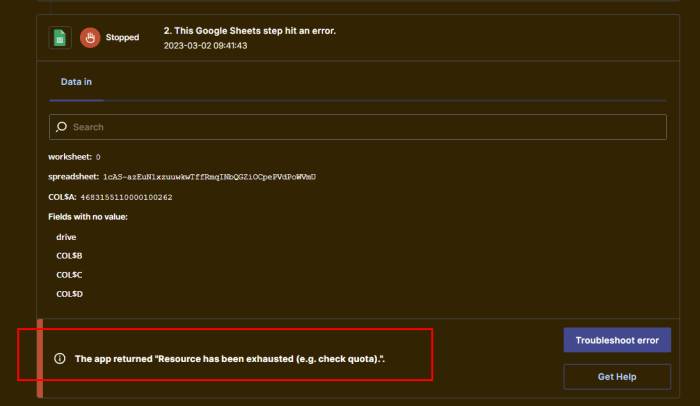How to avoid foreclosure: a topic of utmost importance for homeowners. Foreclosure, the legal process of losing your home due to unpaid mortgage payments, can have devastating consequences. But there is hope. This guide will provide you with a comprehensive understanding of foreclosure, preventive measures, legal protections, and alternative solutions to help you keep your home and protect your financial future.
We will delve into the factors that can lead to foreclosure, such as job loss, unexpected expenses, or simply falling behind on payments. We will also discuss strategies for managing debt effectively, prioritizing expenses, and the importance of budgeting and financial planning.
Understanding Foreclosure
Foreclosure is a legal process that allows a lender to seize and sell a property when the borrower fails to make mortgage payments. It is a serious matter that can have significant financial and personal consequences.
Factors that can lead to foreclosure include:
– Loss of income
– Unexpected expenses
– Adjustable-rate mortgages (ARMs)
– Poor financial planning
Situations that can trigger foreclosure proceedings include:
– Defaulting on mortgage payments
– Violating the terms of the mortgage agreement
– Not paying property taxes or insurance
– Abandoning the property
Preventive Measures: How To Avoid Foreclosure
Foreclosure is a serious issue that can have devastating consequences. However, there are steps you can take to avoid falling behind on your mortgage payments and protect your home.
One of the most important things you can do is to create a budget and stick to it. This will help you track your income and expenses so that you can make sure you are not spending more than you earn. Once you have a budget, you can start to identify areas where you can cut back on spending.
Another important step is to manage your debt effectively. If you have multiple debts, you may want to consider consolidating them into a single loan with a lower interest rate. This can make your monthly payments more manageable and help you get out of debt faster.
Finally, it is important to seek help if you are struggling to make your mortgage payments. There are many resources available to help homeowners avoid foreclosure, including government programs and non-profit organizations.
Identify strategies to avoid falling behind on mortgage payments.
- Create a budget and stick to it.
- Manage your debt effectively.
- Seek help if you are struggling to make your mortgage payments.
Share tips for managing debt effectively and prioritizing expenses.
Here are some tips for managing debt effectively and prioritizing expenses:
- Make a list of all of your debts, including the amount you owe, the interest rate, and the monthly payment.
- Prioritize your debts by interest rate, paying off the debts with the highest interest rates first.
- Consider consolidating your debts into a single loan with a lower interest rate.
- Make extra payments on your debts whenever possible.
- Avoid taking on new debt.
Discuss the importance of budgeting and financial planning.
Budgeting and financial planning are essential for avoiding foreclosure. A budget will help you track your income and expenses so that you can make sure you are not spending more than you earn. Once you have a budget, you can start to identify areas where you can cut back on spending.
Financial planning is also important for long-term financial security. A financial plan will help you set goals for your future, such as saving for retirement or buying a home. It will also help you develop strategies for achieving your goals.
Options for Homeowners Facing Foreclosure
Facing foreclosure can be a stressful and overwhelming experience. However, homeowners have several options available to them to help avoid foreclosure. Each option has its own pros and cons, and the best choice for you will depend on your individual circumstances.
Loan Modification
A loan modification involves changing the terms of your mortgage, such as reducing your interest rate or extending your loan term. This can make your mortgage payments more affordable and help you avoid foreclosure.
Pros:
- Can lower your monthly payments.
- Can help you avoid foreclosure.
- Can improve your credit score.
Cons:
- Can be difficult to qualify for.
- May extend the term of your loan.
- May not be a permanent solution.
Forbearance
Forbearance is an agreement with your lender to temporarily reduce or suspend your mortgage payments. This can give you some breathing room to get back on your feet financially.
Pros:
- Can provide temporary relief from mortgage payments.
- Can help you avoid foreclosure.
- Can improve your credit score.
Cons:
- Can be difficult to qualify for.
- May extend the term of your loan.
- May not be a permanent solution.
Bankruptcy, How to avoid foreclosure
Bankruptcy is a legal proceeding that allows you to discharge your debts, including your mortgage. This can be a last resort for homeowners who are facing foreclosure.
Pros:
- Can discharge your mortgage debt.
- Can help you avoid foreclosure.
- Can improve your credit score.
Cons:
- Can be difficult to qualify for.
- May extend the term of your loan.
- May not be a permanent solution.
Choosing the Best Option
The best option for you will depend on your individual circumstances. If you are facing foreclosure, it is important to speak with a housing counselor to learn about your options and make the best decision for your situation.
Legal Protections and Assistance

Foreclosure can be a daunting and stressful experience, but there are legal protections available to help homeowners facing this challenge. These protections vary from state to state, but generally include:
– The right to receive a written notice of default from the lender.
– The right to a hearing before a judge or magistrate before the foreclosure can be finalized.
– The right to request a loan modification or other alternatives to foreclosure.
In addition to these legal protections, homeowners facing foreclosure may also benefit from the assistance of foreclosure attorneys and housing counselors. Foreclosure attorneys can help homeowners understand their rights and options, negotiate with lenders, and represent them in court. Housing counselors can provide homeowners with financial counseling and advice on how to avoid foreclosure.
Finding Legal Assistance and Financial Counseling
There are a number of resources available to homeowners seeking legal assistance and financial counseling. The National Housing Counseling Association (NHCA) offers a directory of HUD-approved housing counselors at www.nhca.org. The American Bar Association (ABA) offers a directory of pro bono legal services at www.americanbar.org.
Alternatives to Foreclosure
Foreclosure is a devastating event that can have long-lasting consequences. However, there are alternatives to foreclosure that can help you keep your home. These alternatives include short sales and deed-in-lieu of foreclosure.
Short Sales
A short sale is a transaction in which the lender agrees to accept less than the amount owed on the mortgage. This can be a good option if you are facing financial hardship and cannot afford to make your mortgage payments. In a short sale, the lender will typically require you to provide documentation of your financial hardship. The lender will then review your application and make a decision on whether to approve the short sale.
There are several benefits to a short sale. First, it can help you avoid foreclosure and the damage to your credit that comes with it. Second, it can help you get out of debt and move on with your life. Third, it can help you save money on closing costs and other expenses associated with selling your home.
Deed-in-Lieu of Foreclosure
A deed-in-lieu of foreclosure is a transaction in which you voluntarily transfer the title to your home to the lender. This can be a good option if you are facing foreclosure and cannot afford to make your mortgage payments. In a deed-in-lieu of foreclosure, the lender will typically require you to provide documentation of your financial hardship. The lender will then review your application and make a decision on whether to accept the deed-in-lieu of foreclosure.
Avoiding foreclosure requires understanding the intricate web of laws that govern it. By delving into Foreclosure laws , you’ll arm yourself with the knowledge to navigate this complex process. These laws outline the legal framework that governs foreclosure proceedings, providing insights into your rights and responsibilities as a homeowner.
Understanding these laws is crucial for exploring all possible avenues to avoid foreclosure and protect your home.
There are several benefits to a deed-in-lieu of foreclosure. First, it can help you avoid foreclosure and the damage to your credit that comes with it. Second, it can help you get out of debt and move on with your life. Third, it can help you save money on closing costs and other expenses associated with selling your home.
Whether a short sale or deed-in-lieu of foreclosure is the right option for you depends on your individual circumstances. It is important to weigh the pros and cons of each option before making a decision.
Final Thoughts
Remember, facing foreclosure is a challenging experience, but it is not insurmountable. By understanding your options, seeking professional assistance, and taking proactive steps, you can overcome this adversity and protect your home and financial well-being.
FAQ Section
Can I stop foreclosure if I file for bankruptcy?
Filing for bankruptcy can temporarily halt foreclosure proceedings, but it is important to note that bankruptcy does not eliminate your mortgage debt. You may still be required to repay the debt or surrender your home.
What is a short sale?
A short sale is an agreement between the homeowner and lender to sell the property for less than the amount owed on the mortgage. This option can help homeowners avoid foreclosure and damage to their credit.
What is a deed-in-lieu of foreclosure?
A deed-in-lieu of foreclosure is an agreement where the homeowner voluntarily transfers the title of the property to the lender to avoid foreclosure. This option can help homeowners avoid the negative impact of foreclosure on their credit.



